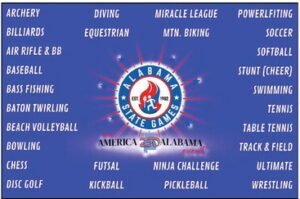Running- Speed, Nutrition and Hydration
MADISON- Hitting the pavement for some speedwork helps improve a runners’ physical economy. Heartbeat increases, breathing becomes challenging and your entire body feels the burn. All of those aspects of speedwork is part of the body learning to improve its ability to take in more oxygen making the speedwork less taxing on the body.
A runner can have lungs of steel and the legs of an Olympian, but if the nutrition to the body is off balance, so will be the final results of a runner’s goal. Nutrition is fuel for the body and like any machine, the fuel mix has to be correct to be efficient.
With winter temperatures now in place, runners need to keep thinking about hydration. Don’t wat until you feel thirsty to drink water.
Speed, nutrition and hydration go hand-in-hand and are important phases in being a better runner, enjoying the sport and overall good conditioning, and is important to every athlete in every sport.
Nutrition
For runners and most athletes, there are three golden rules to live by: balance, quality and nutrition. For runners, they need carbs, fat and protein in order to run well. Each nutrient plays a key role in helping you perform your best.
Carbs are the form of fuel that the body can most efficiently and quickly convert into energy. Fat helps the body retain vitamins and minerals you need to stay strong. Fat also helps boost heart health. Protein helps build and repair muscle tissue, so you can get stronger, faster and rebound from a strenuous physical activity as your body always needs to recuperate from being pushed to the limit in exercising. Aim to have half your daily calories from carbs, a quarter of your calories from protein and the balance from fat.
After all, all would be wasted in your efforts by filling your physical fuel tank with junk food. It’s not always easy to determine which foods are the smartest choices. You should aim for the products with the least amount of sugar, sodium, saturated fat and total number of ingredients. When it comes to fats, aim for plant-based heart-healthy unsaturated fats, such as olive oil, avocado, walnuts and almonds.
Each athlete should understand they can’t go wrong with keeping it simple. You must time your nutrient intake correctly.
Hydration
With the winter season now officially upon us and lower temperatures a mainstay, every athlete must continue to think about hydration. Experts indicate it takes a loss of only 1-2-percent of your body’s ideal water content to cause dehydration. Many times the dehydration effects occur even before you realize what’s happening. The signs are simple: nausea, diarrhea, muscle cramping, dizziness and fatigue. To put it simple- not drinking enough water makes an athlete perform at a lower level.
Dehydration affects every part of your body, that’s why many times a medical professional will assess your condition thinking it could be partly caused by dehydration. Your brain is not always correct in its way to communicate with your body. Many times the brain thinks it hungry, but in reality the body needs hydration with water instead of a snack.
Water is the sparkle to your body in more ways than most know about. Water helps maintain muscle tone, prevents sagging skin and rids the body of toxic waste that can leave you feeling bloated and fatigued. Water directly impacts brain function and energy.
When you sweat, you help your body in number of ways. Most importantly, sweating cools off the body. Sweat is also full of all sorts of vital nutrients, collectively known as electrolytes. Replenishing those electrolytes is as important as using water.
No matter what physical activity is part of an athlete’s routine it’s important to know proper hydration comes in the days and weeks before the main event you are working out for. By consuming electrolytes before, during and after your workouts, every athlete can boost preparation, improve performance and accelerate recovery.
Speed Work
For runners, the term “speed work” can spell anxiety. Some are afraid of failing while some are just shy of the speed work due to its challenge. No matter what the circumstances speed work helps improve running economy. One misnomer is the fact you don’t have to be “fast” to do speed work. Everyone’s pace is different. For runners, it’s best to don’t compare your pace to others. Don’t let the pace of another intimidate you. Stay with your personal pace and enjoy.
Speed work is also a mental challenge. Those workouts can be burdensome, so it’s always best to think about the positive outcome you will achieve by completing your session as the work is hard, but will pay off in the end.
Cotton Row 10K Training
Fleet Feet Sports of Madison and Huntsville are now offering training programs for the annual Memorial Day Cotton Row 10K in downtown Huntsville. Both locations of Fleet Feet have scheduled a 10-week program to help prepare for the largest sporting event in North Alabama.
It’s best to prepare now for the training programs that begin March 15 in Madison and March 16 in Huntsville. Each program will feature a coach and mentors who will work to carefully balance mileage and speed work to help avoid injury and prepare each participant with the top-notch knowledge for the 10K distance. A variety of training techniques will be utilized to prepare any level of runner for the annual event.
The Cotton Row Run is scheduled for May 29, 2023, but training must begin earlier to achieve the best results. The program schedule in Madison will be Mondays and Wednesdays at 6:00 p.m. and on Saturdays at 7:00 a.m. The Huntsville program will have the same start times, but will meet on Tuesdays and Thursdays along with Saturdays. Fee is $125. Visit www.fleetfeethsv@gmail.com to register. If particular questions need to be addressed, e-mail p.moeller@knology.net.
Fleet Feet contributed much of the training information for this writing.

















